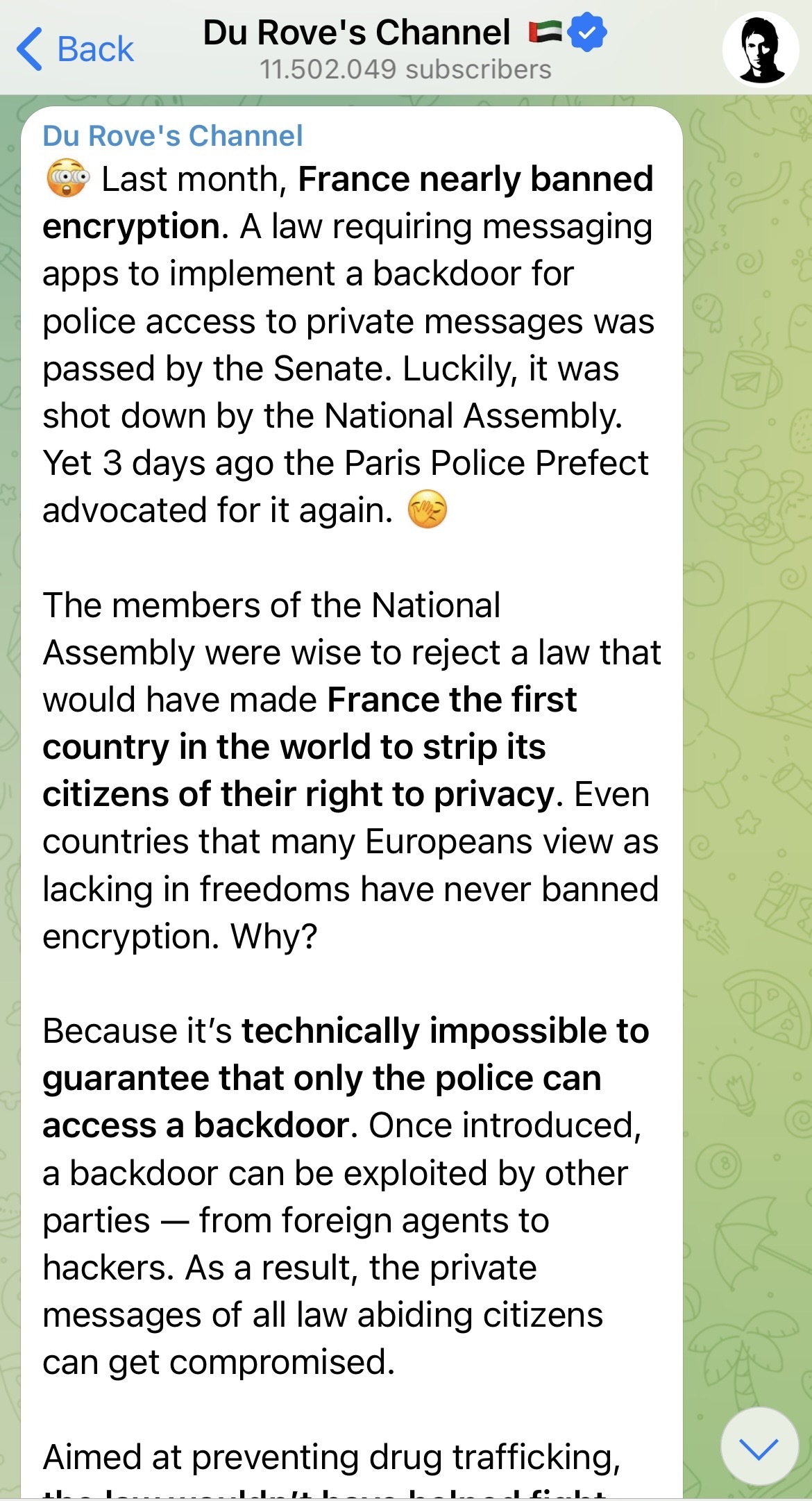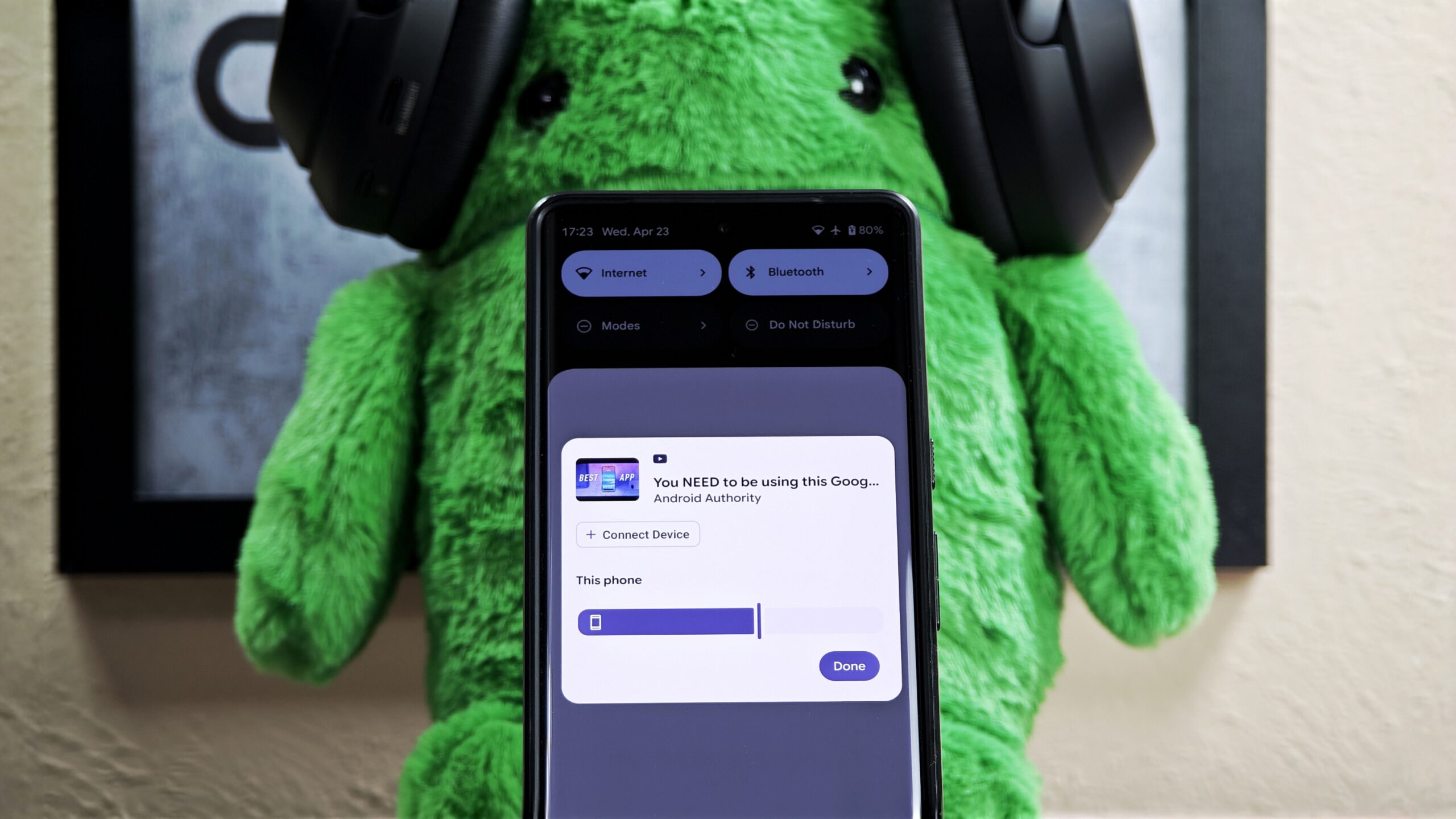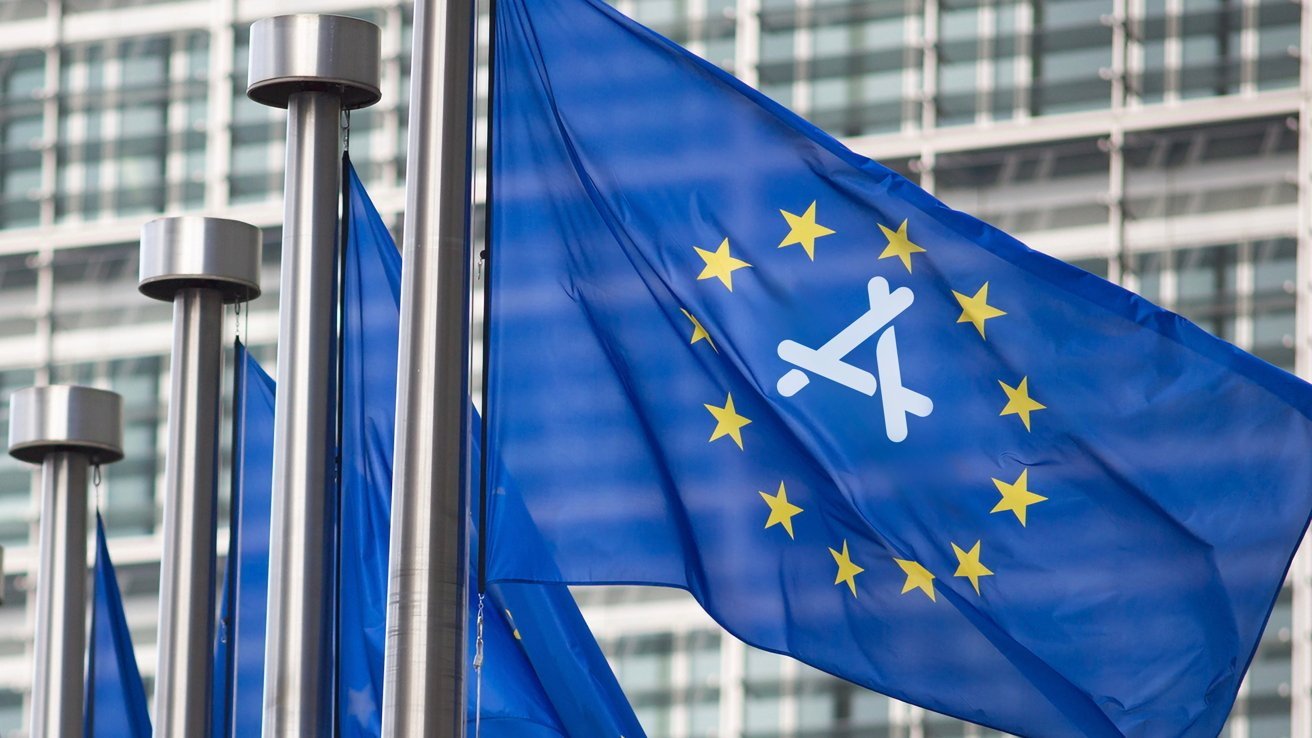Telegram pledges to exit the market rather than "undermine encryption with backdoors"
Telegram's CEO, Pavel Durov, reacts to the widespread push for creating encryption backdoors, reaffirming the company's commitment to users' privacy and security.

- Telegram's CEO, Pavel Durov, has said Telegram would rather exit a market than undermine encryption with backdoors
- This comes as France and other governments push for a legal backdoor for police access to private and encrypted messages
- Pavel Durov was arrested in August 2024 in France for, among other things, providing encrypted services to criminals
Telegram's CEO, Pavel Durov, has said Telegram would rather exit a market than "undermine encryption with backdoors," reaffirming the company's commitment to users' privacy and security.
"Unlike some of our competitors, we don’t trade privacy for market share. In its 12-year history, Telegram has never disclosed a single byte of private messages," wrote Durov in his public Telegram channel on April 21, 2025.
Telegram's pledge comes as a reaction to the widespread push for a legal means for law enforcement to access private and encrypted messages by French lawmakers and other European governments. It echoes a similar position previously shared by secure messaging app Signal and other providers.

As Durov explains in his post, France recently rejected a controversial encryption backdoor provision that "would have made France the first in the world to strip its citizens of their right to privacy."
The bill would have required all encrypted messaging apps and secure email services to decrypt user data upon an authority's request, de facto creating a backdoor for law enforcement into the software's encryption.
Cryptographers and other experts, however, have long argued that such a backdoor cannot be implemented without weakening the security infrastructure that encrypted services rely on.
"Why? Because it’s technically impossible to guarantee that only the police can access a backdoor. Once introduced, a backdoor can be exploited by other parties – from foreign agents to hackers," wrote Durov.
Durov also pointed out how weakening the encryption for every user to fight crime may be ineffective. That's because criminals could keep using the best VPN services and smaller encrypted apps to cover their traces online.
French authorities arrested Pavel Durov back in August 2024, accusing him, among other things, of providing encrypted services to criminals. An investigation is currently ongoing.
"The battle is far from over"
Despite last month's victory in France, "The battle is far from over," said Durov.
This isn't only because, as Durov mentioned, the Paris Police Prefect advocated for an encryption backdoor again last week. More countries in Europe are considering a similar proposal.

While services like Signal and even WhatsApp are end-to-end encrypted by default – meaning that all the messages you exchange on their platform are completely private between you and your receiver – only Telegram's secret chats are end-to-end encrypted. This means that you need to actively select this feature to benefit from this extra level of privacy.
Finding a way for lawful and effective access to data for law enforcement is indeed the main goal of the EU Commission's new strategy, ProtectEU. Encrypted data is the main target.
Sweden is also considering enforcing a similar requirement for the likes of Signal, WhatsApp, and iMessage. If successful, the new rules could come into force as early as March 2026.
In February, Apple was forced to kill its iCloud's end-to-end encryption feature in the UK following a government order to create an encryption backdoor to allow law enforcement access to users' data.
Once thought to be a paradise for online privacy, an amendment to Swiss surveillance law could also put at risk secure encryption and internet anonymity in the country.
Outside Europe, Florida seeks to force all social media platforms that allow accounts for minors to provide an encryption backdoor for law enforcement.












































































































































